Biodegradation & Adhesion Science (BIOAS)
Room JK 303
About:
Biodegradation & Adhesion Science is part of the Department of Metallic Materials Science, Physical Metallurgy, Faculty Materials Science and Engineering, University POLITEHNICA of Bucharest
The laboratory was established in 2010, into the frame of the research project FP7-NMP-2007-LARGE-1, Proiect nr. 293104: Novel biofunctional polymer scaffolds and techniques for the regeneration and repair of degenerate intervertebral disc, Acronym - Disc Regeneration; NMP-2007-LARGE-1, funded by EU, but some new equipment was added later from other research projects.
The research activities performed into the laboratory are integrated into Biomaterials Research Center –BIOMAT (national projects) and Research Department of University Politehnica of Bucharest (international projects).
Collaborations
National
- Technical University “Gh. Asachi” of Iassy
- Babes-Bolyai University Cluj-Napoca
- University Politehnica of Timisoara
- University Transilvania Brasov
- Medicine and Pharmacy University “Carol Davila” Bucharest
- Medicine and Pharmacy University “Gr. T. Popa” Iasi
- Medicine and Pharmacy University “V.Babes” Timisoara
- Medicine and Pharmacy University “Iuliu Hatieganu” Cluj-Napoca
- University “Titu Maiorescu” Bucharest
- University of Oradea
- University Ovidius Constanta
- Emergency University Clinical Hospital SUUB Bucharest
- Emergency Clinical Hospital Colentina Bucharest
- Emergency Clinical Hospital Floreasca Bucharest
- Emergency Clinical Hospital Elias Bucharest
- Central Universitary Emergency Military Hospital “Dr.Carol Davila” Bucharest
- Sanador Hospital Bucharest
- Institute of Cellular Biology and Pathology „Nicolae Simionescu” Bucharest
- Institute of Macromolecular Chemistry. "Petru Poni" Iasi.
- The National Institute for Laser, Plasma & Radiation Physics (INFLPR)
- INCDTP - Leather and Footwear Research Institute, Collagen Department
- Institute for Research in Chemistry “Raluca Ripan” Cluj-Napoca
- Medical Ortovit SRL Bucharest
- Vodimedicor SRL Bucharest
- Rodax Impex SRL Bucharest
- Ortopedica Bucharest
International
ERASMUS Agreements
- Istanbul Technical University, Turkey (Professor Gultekin Goller)
- University of Alicante, Spain (Professor Jose Miguel Martin Martinez)
- Università degli Studi Niccolò Cusano -Telematica Roma, Italy (Professor Ilaria Cacciotti)
- Polytechnical University of Marches, Ancona, Italy (Professor Franco Rustichelli)
- Riga Technical University (Professor Yuri Dekhtyar)
Research collaborations
- Mainz University, Germany (Professor James Kirkpatrick)
- University of Naples "Federico II', Italy (Professor Luigi Ambrosio)
- University of Minho, Portugal (Professor Rui Reis)
- Technion University, Haifa, Israel (Professor Elazar Gutmanas)
- University of Brighton, UK (Professor Matteo Santin)
- University of Nantes (Professor Guy Daculsi)
- University of Manchester (Professor Paulo Bartolo)
- IFW Dresden (Associate Professor Mariana Calin)
- EPF Lausanne (Professor Jacques Lemaitre)
- AO Research Institute Davos, Switzerland (Dr. Geoff Richards; Dr. Mauro Alini)
- Institute of Strength Physics and Materials Science of SB RAS, Tomsk, Russia (Dr. Yurii Sharkeev)
- Institute of the Structure of Matter of the Italian National Research Council Rome, Italy (Dr.Julietta Rau)
PX TECH Chaux-du-Fond (Dr. Reclaru Lucien).
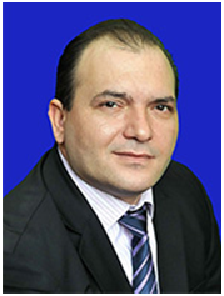
Head of laboratory:
Professor Habil. Antoniac Vasile Iulian
Contact: +40745206509
Send Mail
See personal web page
Academic & Research Staff:
- Lecturer Octavian Trante
- Assistant Robert Ciocoiu
- Dr. Antoniac Aurora
- PhD student Plopeanu Elisa
- PhD student Camelia Tecu
- PhD student Florentina-Cătălina Vârlan
- PhD student Ionuţ-Bogdan Bălan
- PhD student Anton-Adrian Budici
- Master student Adela Izabela Ștefan
Expertise
- Biodegradable Metallic Biomaterials
- Biodegradation in Simulated Medium
- Interface Phenomena Implant-Tissue
- Explant & Tissue Analysis
- Bioceramics & Biocomposites
- Adhesion Phenomena
Tissue Engineering
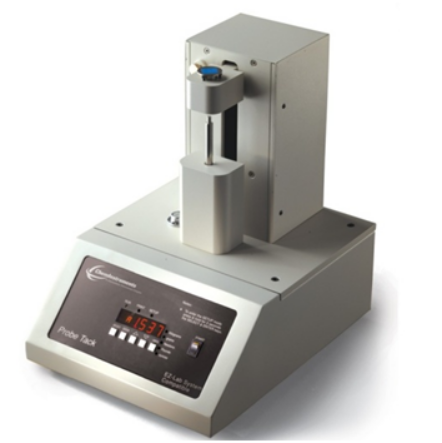
Polyken™ Probe Tack from ChemInstruments
The Polyken™ Probe Tack from ChemInstruments makes it easy to measure the tack of pressure sensitive adhesives. A precision ground 5.0 mm diameter flat probe contacts the adhesive, reverses direction and pulls away from the adhesive. The maximum force required to break the adhesive bond is recorded and displayed.
The Polyken™ Probe Tack adhesive testing machine meets the standards set forth in ASTM D2979. Machine speed is 24 ipm (61 cpm), probe diameter of 5 mm and an annular ring weight that applies 9.79 +/-0.10 kPa of force. An automatic test cycle produces a 1 second dwell time from the beginning of contact to the end of contact.
- Rugged construction, capable of withstanding the abuse of the production environment
- Single speed motion utilizes a cam design for consistent and repeatable testing
- Easy sample setup makes testing quick and consistent
- 5 pound load cell is included with the machine
- Simple one-touch operation delivers information quickly and easily
- Operating temperature range 32° - 150° F (0° - 70° C)
- Capable of stand-alone operation with integrated digital display
- Data can be downloaded to EZ-Lab software for complete data management
- Accurate to ± 0.1% of load cell range
- Capable of pulling up to 5 pounds (2.5 Kg)
Standard input voltage - 120 VAC (50/60hz)
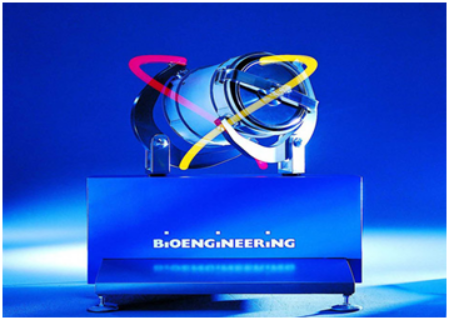
Inversina Bio System for Mixing Biocompatible Powder
The Inversina Bioengineering system for mixing biocompatible powder offers simple, rapid, and increased mixing efficiency.
- Length / Width / Height: 350 / 290 / 260 mm
- Total weight: 7 kg
- Empty weight: 7 kg
- filling weight: 4.0 kg
- filling degree: 75 %
- Mixing vessel (PET) 1.5 L: ø120 mm x H 165 mm
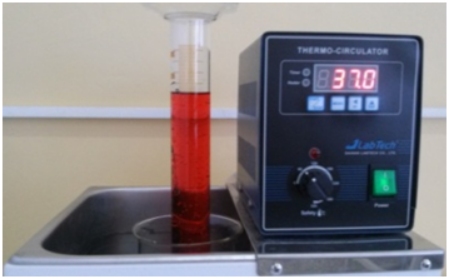
Immersion Bath Circulator LabTech Model LCB-11D
- Dimensions (W x D x H mm)
Bath 302 x 240 x 150
Overall 338 x 280 x 400
Top 160 x 240 - Capacity 11 ℓ
- Heater 2000 w
- Weight 8 Kg
- Temperature Range Ambient + 5℃ to 99℃
- Controller Digital PID Controller
- Display 4 Digit LED Display
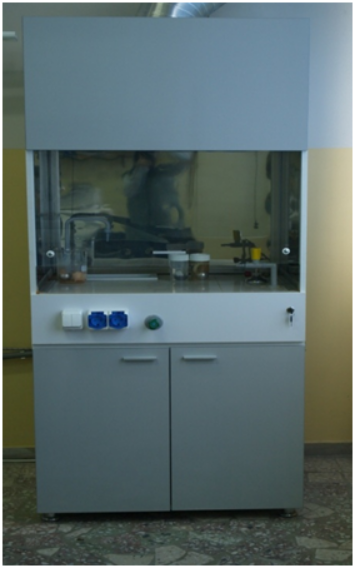 Niche
Niche
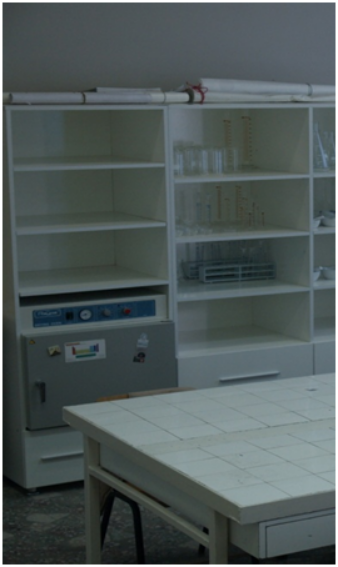 Oven
Oven
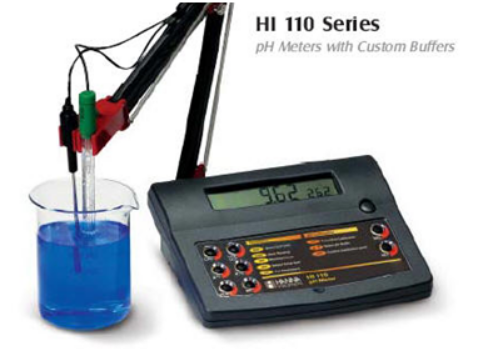 pH-meter
pH-meter
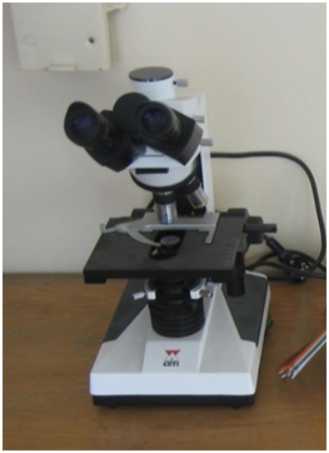 Microscope
Microscope
Teaching Activities
- Introduction in Biomaterials (1st year, graduate, Medical Engineering specialization)
- Biocompatibility (1st year, graduate, Medical Engineering specialization)
- Interaction biomaterials-tissue (2st year, master, Metallic Biomaterials program)
- Prosthetic explant analysis (2st year, master, Metallic Biomaterials program)
- Clinical Engineering (1st year, graduate, Medical Engineering specialization)
- Surgical Instruments and Medical Devices (4st year, graduate, Medical Engineering specialization)
- Other: investigations for graduation and PhD thesis; Erasmus students from other countries.
Research Activities
Test equipment available for use by all members of the group / department. This equipment is also available for use by other members of the University and outside organizations.
Persons who intend to enquire about using this equipment must contact the head of laboratory (Professor Habil Antoniac Iulian) to discuss the requirements and other details.
Research Topics
- Biodegradable Metallic Biomaterials
- Biodegradation in Simulated Medium
- Interface Phenomena Implant-Tissue
- Explant & Tissue Analysis
- Bioceramics & Biocomposites
- Adhesion Phenomena
- Tissue Engineering
Training Activities
- Interface & Adhesion Phenomena in Biomaterials and Medical Devices
- Management of the Metallic Surgical Instruments
- Research Projects Management in Biomaterials and Medical Devices
Remarks
- Integration: Materials Characterisation (Materials Engineering field); Biomaterials & Medical Devices Characterization (Medical Engineering field).
- Complementarities: Sample Preparation Lab.; Quantitative light Microscopy Lab.; SEM/TEM Electron Microscopy Lab.; SDAR-OES & EDP XRF spectrometry Lab.; Biodegradation & Adhesion Lab.; Electrochemistry & Surface Functionalization Lab.; Corrosion Lab.